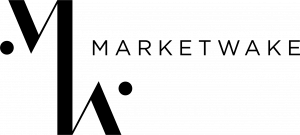
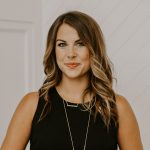 After more than a decade in marketing and communications, Brooke Beach knows it’s always about putting people first, and often about pushing past the great ideas to get to the core message of why a business is impactful, and how to build a foundation for success from there.
After more than a decade in marketing and communications, Brooke Beach knows it’s always about putting people first, and often about pushing past the great ideas to get to the core message of why a business is impactful, and how to build a foundation for success from there.
Marketwake, the Atlanta-based digital marketing agency she founded in 2015, lives this mantra, focusing on the intersection of data and creativity to share compelling stories and build unforgettable brands.
As CEO, she’s built an agile team and a challenging, supportive environment that has named Marketwake on both Inc.’s Best Places to Work and Inc.’s Fastest Growing Businesses lists. Along the way, she’s consulted startups, interviewed movie stars, led nationwide PR and marketing campaigns for Fortune 500 companies, spoken at universities, and, of course, given a TED talk.
More recently, she’s played host to Venture Atlanta, the South’s leading venture conference, and launched Marketwake Ventures, a venture fund dedicated to expanding the tech ecosystem in Atlanta and beyond.
When she’s not busy making 40 Under 40 lists, Brooke Beach has been known to fly her company worldwide—New York, Kingston, and Reykjavik—for team bonding and cheer on the Georgia Bulldogs from the hedges as a proud UGA alum.
Follow Marketwake on Facebook and LinkedIn.
What You’ll Learn In This Episode
- The importance of recovery as a leader
- Split attention
- Think Bigger to you/ to your company
- Leadership advise
This transcript is machine transcribed by Sonix
TRANSCRIPT
Intro: [00:00:04] Broadcasting live from the Business RadioX Studios in Atlanta, Georgia. It’s time for Atlanta Business Radio brought to you by on pay Atlanta’s new standard in payroll. Now here’s your host.
Lee Kantor: [00:00:24] Lee Kantor here, another episode of Atlanta Business Radio, and this is going to be a good one, but before we get started, it’s important to recognize our sponsor AMP. Without them, we couldn’t be sharing these important stories today on the land of Business Radio. We have Brooke Beach with MarketWake. Welcome, Brooke.
Brooke Beach: [00:00:41] So glad to be here. Excited to talk to you. You and the crew today.
Lee Kantor: [00:00:45] All right. Well, tell us a little bit about Market Week. How are you serving, folks?
Brooke Beach: [00:00:49] Market Week it’s a digital marketing agency located in Atlanta. We serve people for on the digital side with three different departments. The first is marketing, where we’re really focused on lead generation demand and think paid media, SEO, content creation, social, all of the things that became very popular when COVID happened. And before, obviously. And then the second is our websites and projects and branding if we are driving leads, but the website isn’t converting them and there’s a gap there, so we help fill that gap. And then last is Salesforce implementation. And people always kind of scratch their heads and they’re wondering why Salesforce? It’s all Salesforce and systems HubSpot marketing automation tools. They really they’re the backbone of a lot of what we do, and it helps make our job a whole lot easier and obviously our clients happier when we can trace a lead from the time they interact with the website all the way through the time they become a full time customer.
Lee Kantor: [00:01:45] Now what drew you to this convergence of creativity and data?
Brooke Beach: [00:01:51] Previous life? I was the CEO of a tech company and in that I actually worked with a lot of agencies and kind of found the split on one side. I would have some of the most creative people in the entire world producing beautiful campaigns, beautiful designs. But when I ask them hard questions like, OK, do we know if this worked? What’s the ROI? How many leads does this get us? It’s kind of a head scratching moment, and it could never really give me clarity there. And then on the other hand, I would work with phenomenal technicians, analysts, implementation specialists. But when it came to creative, there was a huge gap and realized, Hey, marketing really should be the marriage between those two. Yes, it needs to look good and it needs to read well and it needs to connect and be a compelling message. But equally as important, we’ve got to know if it works. And are we actually doing the right things and getting it in front of the right people? And at the end of the day, marketing should move your business forward. It’s not a nice to have. It really should be a need to have, and that intersection is what gives us that ability.
Lee Kantor: [00:02:49] Now, when you’re having those conversations with folks, I would imagine there are some pushback in terms of it sounds good, but it’s like there’s so much data it’s hard to know what is a number worth measuring and what is just a number that we can measure because we can measure it.
Brooke Beach: [00:03:11] You’re very correct and it is a daily battle because there’s always new ways to slice and dice data, right? What metrics are you looking at? What’s your KPI? Are we looking at traffic or are we looking at conversions? Or are we looking at marketing qualified leads? It is very specific to what the goal is. Some of our clients, they want brand awareness. That’s a much more fun conversation where it’s just how many views and then others are very centered on know how many opportunities and what’s the value of that opportunity. And that’s exactly what we’re going to measure. We’ll give our recommendations and the KPIs that we think are by far and away the most important. But it is it is a little bit nuance depending on the client that we’re working with and what their goals are.
Lee Kantor: [00:03:50] Now how do you handle the conversations where there is such distrust about even numbers that can be counted because people can manipulate a lot of the digital numbers that are out there?
Brooke Beach: [00:04:04] Oh, it’s really nice. Yeah, generally you can manipulate a lot. It’s just all of a sudden you go from one customer to three and it’s like, Oh, we grew. It’s so much amazing. We deal with that a lot. We actually create dashboards that are very, very transparent. It’s the best way around it. You know, at the end of the day, my goal is that we are an extension of our clients team. I want us to feel like partners or there should be no smoke and mirrors. I want them to call us when they have their baby shower and they’re getting married. So we have a very close relationship with our customers, and in that comes transparency in our own lives and then also in the data. So we’ll build dashboards. We’ll make sure that they have access to it. We’ll we’ll in those dashboards, give them access to slice and dice it the way that we want. And then we’ll all or the way that they want and then also have areas of very clear cut concrete metrics that we’re measuring against, which is helpful because you’re right, a lot of marketing agencies, they’ll they’ll present the best of the when we grew 300 percent this year and it’s like, Yeah, but what are we actually looking at?
Lee Kantor: [00:05:04] Well, I find that, you know, kind of the money in the bank is a good metric to measure.
Brooke Beach: [00:05:12] It’s the most concrete. Yeah, that’s. And then where does that money come from, what you leads and how
Lee Kantor: [00:05:19] That’s where the magic happens? If you figure that out. But. Talk a little bit about your journey as an entrepreneur. You mentioned that you started in a tech firm leading a tech firm, and now you’re leading an agency that works probably with a lot of the tech firms. Talk about how maybe that’s evolved over the years and especially going through, you know, such a disruption as COVID.
Brooke Beach: [00:05:42] Absolutely, I started this and I love marketing, I actually graduated with PR, I did PR for a little while. I enjoyed it, but I’m definitely more on the numbers side and I can tell that marketing was much more closely tied to the ROI and business goals and objectives, so I wanted to move in that direction. I was actually the story of Market Week. I was at a lake house trying to figure out what I was going to do. I had this. I’ve heard before that entrepreneurs have this calling on their lives and there’s no way they can avoid it. They can try, but they cannot hide from it. And you have to just at one point embrace it and move forward, even though it’s scary. So it’s kind of I had that calling rate of I need to start something. It’s probably just going to be me. I didn’t have that vision of is going to be a huge company and we’re going to grow X percent year over year. It was just I need to start something and I don’t know what it looks like. So I’m sitting on the dock. It’s about six o’clock in the morning and I’m watching all of these boats go by.
Brooke Beach: [00:06:38] It’s actually like burden for those who are familiar in the area, the beautiful boats were in a no wake zone and they’re just going by. There’s fog in the lake and I’m thinking through what I need to do. And then all of a sudden, this little tiny bass boat, I mean by far and away, the smallest and least impressive of all of the boats starts to go by same speed. No wake zone. But that little boat left a wake so large that it shook the dock that I was on, and that’s what I realized. It’s exactly what I want to do. I want to help people in small businesses and in big businesses figure out what is the wake that you’re leading in the world and help them realize the impact that they can have. And that’s where the name came from. That’s where Market Week started. And that’s what we preach and believe is every single person in business has a week that they leave, and our job is to help shape that in a positive way. So at that point, Mark was born, and it’s been a quite a journey since then. I actually, six months after starting it, I was asked to be the CEO of a different company while it was going through a pivot and hard decision.
Brooke Beach: [00:07:45] I had already gotten customers on board with Market Lake. I was I was trying to convince someone to quit their job and follow me like I was head first all the way in. But then this opportunity presented itself and I figured, OK, hey, if this is going to be temporary, if I’m just going to be here to help turn it around, then maybe, maybe it’s worth it. So I went ahead and did that. I was CEO of this company. I was going through a pivot during the day. I was working mark awake at night, trying to keep the lights on because I knew I eventually have to go back there. So I didn’t want it to fall apart and within 15 months was able to get the company to positive hand it off to the CTO and then went back to market work full time in twenty seventeen. There was a I think there were two in twenty seventeen and there’s an over 40 of us now. So it’s been a wild ride the past couple of years, but much better growth.
Lee Kantor: [00:08:37] Now, any advice for the entrepreneur that’s out there that has kind of a vision, they they think they know what they want to do, but maybe they are getting caught up in it and then they’re not making the impact that they’d like and they’re frustrated, maybe in this journey. They know what they would like to do, but it’s just it’s just not there. It’s just not clicking yet. Do you have any advice on how to weather that storm?
Brooke Beach: [00:09:05] It’s hard. It’s hard. I feel that sometimes you do have that calling and it’s just, you’re working. You’re feeling every single day you’re in that grind and it’s not where you want it to be. There were many, and I’m sure still will be moments like that. The best advice is to figure out your why. There’s an amazing books from Simon Sinek start with why and then another one of the infinite mindset. Both of those books had a huge impact in shaping the way that I see this business in my role within that business. In those darkest days, you have to have a guy that’s bigger than yourself. You have to have a mission that is bigger than just you wanting to build something for the sake of it or you wanting to have a lifestyle business or whatever that might look like if you don’t have that to fall back onto. This is why I’m doing it. This is why it’s worth it. It does get hard, but the cool thing is when you do create that wine, you spend time really processing and contemplating what that lie is of why in the world did you get started and why do people care? It it has this very compelling effect on your team. It gives them something grounded to hold on to to say, Oh, this is why I’m here to. I’m not just here to collect a paycheck, I’m here to do something bigger than myself. And that’s a really powerful concept that leaders sometimes don’t grasp. It’s, Hey, we’re here to grow, we’re here to reach your numbers. We’re here to reach next year’s numbers. But at the end of the day, people still want a connection to something bigger than themselves. And that story and and figuring out that why is going to help you kind of break the monotony of the grind and figure out what you’re here for now?
Lee Kantor: [00:10:44] Do you find that most people just don’t think big enough?
Brooke Beach: [00:10:49] Yes. So funny that you say that that’s one of our mantras is and you’ve probably seen it. We have it everywhere, but it’s think bigger because people don’t think big enough. They really don’t. And I have it all over my office and all over the walls everywhere because it’s like, I want a a constant reminder to say, Hey, the sky’s the limit. And if you were not thinking bigger, then you’re missing. Opportunity to the point where we even moved into a new office space in one of my requirements was 30 foot ceiling because I don’t want them to have a ceiling on their thoughts. I want it to feel big when they walk in the room. And I kept talking about thinking bigger and finally decided, OK, I got I got to show them what this looks like. So twenty nineteen. Right, right? Pre-covid, 2019 Christmas. I actually surprised the entire team in their spouses and significant others with the trip to Iceland gave them all tickets they got on an airplane. It was a pretty whirlwind experience. Got an airplane landed and I’ll never forget we got to chase the northern lights. We found them. One of the days we were actually snowmobiling on a glacier, which I’ve never been on a glacier before, and it’s pretty substantial. I had no idea the size. It’s frozen ocean. It’s huge. So we’re standing on this glacier. We’d gotten on snowmobiles. We had to follow a very specific path because if we deviated from that path, there was a chance that you could fall into a a hole, a crevasse, if you will, which was a little bit nerve racking.
Brooke Beach: [00:12:20] So everyone follows this path we’re led by a couple of people would get on to the center of the glacier. It is, I think, at that point, negative thirties. We’re in all of these suits and hats and gloves, and all you can see of us are these eyes behind goggles. We line up our snowmobiles and it is completely silent. And I watch as everyone gets off their snowmobile and we take in the scene of the fog that we’re on a glacier with our team overlooking the mountains of Iceland as the sun is going down. And it was one of the most. I mean, even still, I get goosebumps. That was. The personification of thinking bigger of like, did you ever think that we could be here or did you ever think that this was possible? And ever since then, the last year in Jamaica, this year we’re going somewhere else that I can’t say because it’s a surprise. But ever since then, that travel aspect has been a big part of why our creativity and are thinking bigger concept land so well for our clients because we’ve gotten to see what thinking bigger can do in real life together and that that creates a really amazing bond and a really cool mindset that we get to bring back to our clients.
Lee Kantor: [00:13:29] Now, any advice for that entrepreneur that’s, you know, at the beginning stages, maybe of the journey. How do they kind of create that kind of a culture in that kind of a mindset when maybe they don’t have the resources to go to Iceland or some of these exotic locales?
Brooke Beach: [00:13:45] Yes, the reason you can do a lot with a little, so be willing to stretch a little bit, but it is kind of remarkable of how things start to come together when you make that decision, when you just you start to figure out ways, but you don’t have to do those big tricks in order to create a culture like that. It is about the values that you hold and the way that you empower your team to make decisions and to think about their own lives in parallel with your business because they’re working with you sometimes more than they are even at home or seeing their friends or seeing their families. So it’s important for you to recognize that fact and and give them tools to grow so they feel like they’re experiencing personal and professional growth inside of the business, and then also recognizing the fact that they’re putting a piece of themselves into the world. That’s a vulnerable and exciting endeavor, and they should be very proud of it. So empowering them to feel that way and having some very clear values of thinking bigger and what you want the framework of your team to be is is pretty spectacular. And then doing small surprises, those the last 10, I tell everyone, I’m like, Yeah, yeah, sounds great, but just do some surprises like literally have them walk in one day and have a Waffle House truck there, and they’re serving waffles and breakfast, or every once in a while will bring puppies. You can rent puppies, which sounds like the most crazy concept in the entire world that rent puppies and bring them in and surprise them and then just give everyone that love time. So small surprises like that go a really long way because you’re showing your team that you care about them and you care about things outside of just them doing their job day in and day out.
Lee Kantor: [00:15:21] So now as you’re evolving, as a leader in the community and your business, obviously the impact that you’re making is real. What is the most rewarding part of the job for you? Is it getting a new client, getting a one of your people kind of grow into an even bigger role? Where is the kind of the proud moments for you in your journey?
Brooke Beach: [00:15:44] Oh, it’s so fun. The moments all the time. I mean, we’ll land a big client or I get an email from a client like, I love this person. They’re so great at their job. I’m so blessed to know them like, Oh, that that feels so good. I feel like a proud mom all the time, which don’t tell the team that, but I definitely do. I feel like a proud mom. But then other aspects of when I see them taking their role very seriously and growing, we’ve had people start as a account manager, grow to senior account manager, grow to marketing director and beyond, and having them choose markedly to excel. That career path is a huge honor. And then watching them become who they need to be on behalf of the company and clients. We have people here who start May. They’ve never even heard the term SEO, and we’re throwing clients at them, and I’m sure they feel like they’re drinking from a fire hose. And it is amazing to see that the people who just own it, they take it, they run with it. They know, realize that they have the ability to really create a pathway and a trajectory for themselves here. And they go from maybe never hearing the term SEO to mastering a strategy on behalf of a client in a couple of months and being very dedicated to their learning and coaching and training. And I, I have so much small, tiny little pieces of joy all day long that also helps break up some of the grind.
Lee Kantor: [00:17:04] Now, any advice for a person that is starting out in wanting to get their digital marketing right, any advice or some to do’s for them that they can? They can be doing themselves to kind of take their marketing to a new level?
Brooke Beach: [00:17:19] Hmm. Absolutely. I think for digital marketing, one of the most important things that you can do is become Google Analytics certified. Start looking at certifications for not only Google Analytics, but Google Ads, Facebook ads, SEO and then certifications. Hubspot offers another one called inbound that’s really good. That gives you a fantastic high level overview of what demand gen and lead generation actually looks like. Getting those certifications goes a very long way in the interview process, because here’s the issue. A lot of people graduating from college right now, they’re still learning a more traditional marketing. Textbook of hey, here’s here’s media, here’s what p.r. looks like. Here’s what TV and radio spots look like, and it’s important and you need to integrate all of those things. But in addition to that is, hey, go above and beyond. Take the certification to really understand digital, and then you can pair that on top of some of the more traditional to really make it powerful.
Lee Kantor: [00:18:23] So now, if somebody wants to learn more, have more substantive conversation with you or somebody on your team, what’s the website?
Brooke Beach: [00:18:31] Margaret, wait. They can go there, there’s information on careers, there’s information on our all of our offerings and some fun little Easter eggs. If you start poking around there, some fun surprises across the website.
Lee Kantor: [00:18:44] You’re always surprising and delighting.
Brooke Beach: [00:18:46] Well, sometimes sometimes it’s it’s a fun way to get through the day and make people smile because, you know, we’re all in this crazy game of business together, right?
Lee Kantor: [00:18:58] That’s right. Well, Brooke, thank you so much for sharing your story today. You’re doing important work and we appreciate you.
Brooke Beach: [00:19:03] Oh, thank you so much for having me. I really appreciate it.
Lee Kantor: [00:19:05] All right, this Lee Kantor will sail next time on Atlanta Business Radio.
About Our Sponsor
OnPay’s payroll services and HR software give you more time to focus on what’s most important. Rated “Excellent” by PC Magazine, we make it easy to pay employees fast, we automate all payroll taxes, and we even keep all your HR and benefits organized and compliant.
payroll services and HR software give you more time to focus on what’s most important. Rated “Excellent” by PC Magazine, we make it easy to pay employees fast, we automate all payroll taxes, and we even keep all your HR and benefits organized and compliant.
Our award-winning customer service includes an accuracy guarantee, deep integrations with popular accounting software, and we’ll even enter all your employee information for you — whether you have five employees or 500. Take a closer look to see all the ways we can save you time and money in the back office.
Follow OnPay on LinkedIn, Facebook, and Twitter


 Gaëtan Pellerin with
Gaëtan Pellerin with 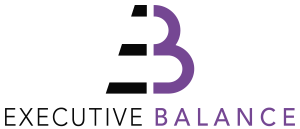
 Steve Buisson, Founder and CEO of
Steve Buisson, Founder and CEO of 
 Nathan Nordstrom joined
Nathan Nordstrom joined 
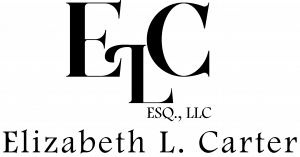

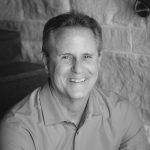 With 35+ years of experience in ownership/C-level executive, sales, operations leadership, and business coaching, Tom Irby have a proven track record of pioneering the road to recovery for businesses who are experiencing challenging cash situations and detrimental business trends; his passion is to assist in the creation of goals and establish a clear, concise plan, then make it happen.
With 35+ years of experience in ownership/C-level executive, sales, operations leadership, and business coaching, Tom Irby have a proven track record of pioneering the road to recovery for businesses who are experiencing challenging cash situations and detrimental business trends; his passion is to assist in the creation of goals and establish a clear, concise plan, then make it happen.
 If there were a restaurant marketing Hall of Fame, Jan would be in it. She has survived with flying colors over 35 years in a tough, competitive and ever-changing category.
If there were a restaurant marketing Hall of Fame, Jan would be in it. She has survived with flying colors over 35 years in a tough, competitive and ever-changing category.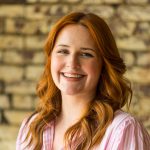 As CRVAS quickly grew, Charlie brought his wife Caroline on board as the President of CRVAS to help meet the increasing demand.
As CRVAS quickly grew, Charlie brought his wife Caroline on board as the President of CRVAS to help meet the increasing demand.
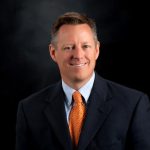 Following an early career in insurance operations, Jeff Garrison started a recruiting firm serving the property and casualty insurance industry. He built a profitable firm which he sold in 2008.
Following an early career in insurance operations, Jeff Garrison started a recruiting firm serving the property and casualty insurance industry. He built a profitable firm which he sold in 2008.













